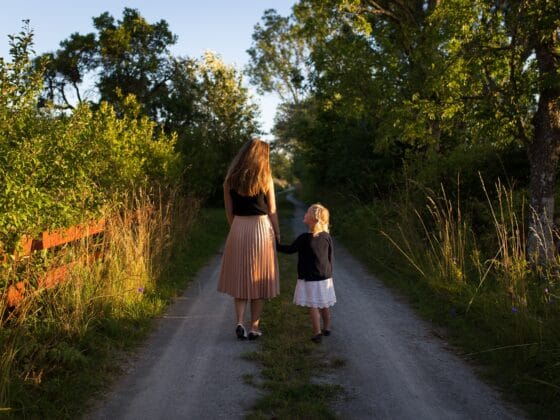Divorce is a sad fact of life. Sometimes, parents grow apart, and the best thing for everyone is that they are no longer married.
If your parents decide to get divorced, you need to know that it is not your fault. The adults in the relationship have decided it would be better for them not to be together. But that doesn’t mean they are unconcerned for your welfare. You will no doubt have many questions if your parents are getting divorced. Some of those may be about your rights. We spoke to Alfred Ip, a family lawyer and partner of local law firm Hugill & Ip, and asked him what children of divorcing parents need to know.
Do I have to move house? Do I have to move school?
It depends on the circumstances. Undoubtedly, for some children, the toughest element is not necessarily the separation from one parent, but from the frustrations and anxieties connected to moving home and changing neighbourhoods or schools.
Parents are often advised to maintain the status quo as far as possible and ensure that there is a stable environment for their children. While there may have to be some changes, retaining as much stability as possible is hugely important – this includes their home, school, leisure activities, friends and extended family. However, finances play a large role in all divorces. When one family is split into two, living expenses will become higher, especially in Hong Kong where the cost of living is one of the highest in world.
Many families are forced to move to smaller homes or different neighbourhoods and often end up having a less disposable income and compromises to living standards may have to be made.
Do I get any say in who I live with?
Again, the answer would be: “it depends”. Parents should certainly involve their children – especially when they’re older – in the decision-making process and consider their wishes and needs. If your parents have a reasonably good relationship, then it will be certainly easier.
You may have heard people talk about “custody” when parents are getting divorced. This refers to the power to make important life decisions for the child and is usually awarded to both parents.
If living arrangements cannot be resolved by your parents, it will need to be determined by the Court. The Court will ask for a report from a Social Welfare Officer and/or a Clinical Psychologist and take into account your parents’ views. Social Welfare Officers will conduct extensive interviews with you and any siblings, and the people who involved in your lives, such as other family members and teachers. Pending a final decision, the Court will make an interim order upon reviewing the individual circumstances. Any decision by the Court will be solely based on the best interest of the children. The Courts use sometimes confusing terminology when defining how a child is to be cared for. “Care and control” refers to taking care of day-to-day issues. Typically “care and control” is granted to one parent although “joint care and control” orders are possible, usually with the consent of both parents where there remains a good relationship.
Am I allowed to spend time with the parent I’m not living with?
Yes, absolutely. “Access” means your right to see the parent who you’re not living with, or in the case of joint custody, the right of the child to see the parent without care and control. Ideally, parents should agree arrangements between themselves, taking into account the needs and wishes of the child. Again, if an agreement cannot be made the Court will make an order for reasonable access be given to the non-custodial parent.
Am I responsible for communications between my parents if they’re not speaking to each other?
You should not become a messenger for your parents, and it is unfair for your parents to ask you to act as a go-between. Leave communication to adults who should be mature enough to handle communication between each other and to stand by the life choices they make.
Do I have to stay with either parent? Can someone else be my guardian?
In the vast majority of cases, children will reside with one of their parents. In exceptional situations, where both parents are unable to provide the necessary care,e.g. where there are serious health issues, a guardian may be appointed. Guardians are often members of the child’s extended family, such as grandparents.
What if my parents refuse to speak to each other?
There is not much you, as a child by law, can do. Parents who do not speak to each other will often pass that job to somebody else, such as lawyers!
How does a child seek help?
If any child feels uncomfortable, talk to trustworthy adults such as social workers or teachers. If circumstances rendered that they would be taken away from their parents in order to protect them, court process may be commenced for their long term arrangement.
Is there child support in HK? How can I be sure that it will go toward my needs?
In most cases the Court will make an order for the financial support for children, usually until they turn 18 or finish their first university degree.
Are my parents still responsible for paying for my food/ accommodation/ schooling? What responsibilities does either parent have once I turn 18?
Yes, your parents should provide you with food, accommodation and schooling. Financial provision for a child ceases when the child reaches 18 years of age. However, there are certain circumstances which allow financial maintenance to continue beyond that age – e.g. continuing education or training expenses or other special circumstances, including special needs and disability.
A parent has been emotionally/mentally/physically abusive to the other/me/my siblings. What rights do I have?
Every child has the right to feel safe in their home. If you have an abusive parent, you need to tell a trusted responsible adult. This can be, for example, another family member or a teacher. You should also be open and honest with any social welfare officer when they are preparing their social welfare report.
The parent who has custody of me has a new partner who I don’t like. Can I move in with my other parent?
You can’t make this decision alone, and ideally it would be a decision that is arrived at by consent. If your parents cannot reach an agreement, an application can be made to the court to vary any care and control arrangements letting you live with the other parent. In arriving at its decision, the court will have regard to all of the circumstances and what it considers to be in your best interests.
If one parent has custody, who has right to make medical decisions for me?
Depending on your age, if only one parent has “custody”, they would need to give consent for most medical decisions. However, as mentioned, “custody” is usually granted to both parents. Therefore, while the parent who has care and control would be able to make fairly minor medical decisions (e.g. treatment for common minor illnesses), both parents would need to give consent to more serious medical treatment (e.g. where surgery may be necessary).
My parents have each decided to take one of us after the divorce. What can I do if I don’t want to be separated from my younger sibling?
It would be very unusual for a court to make an order that siblings live separately from one another. “Sibling unity” is a concept that the courts strongly adhere to, especially when the siblings are of similar ages and are accustomed to living together, but every situation and circumstance is different. Parents would need to establish the reasons justifying the choice of separating siblings from each other and the wishes and desires of the siblings should also be taken into account.
The article was originally published on South China Morning Post – Young Post and was edited by Karly Cox




